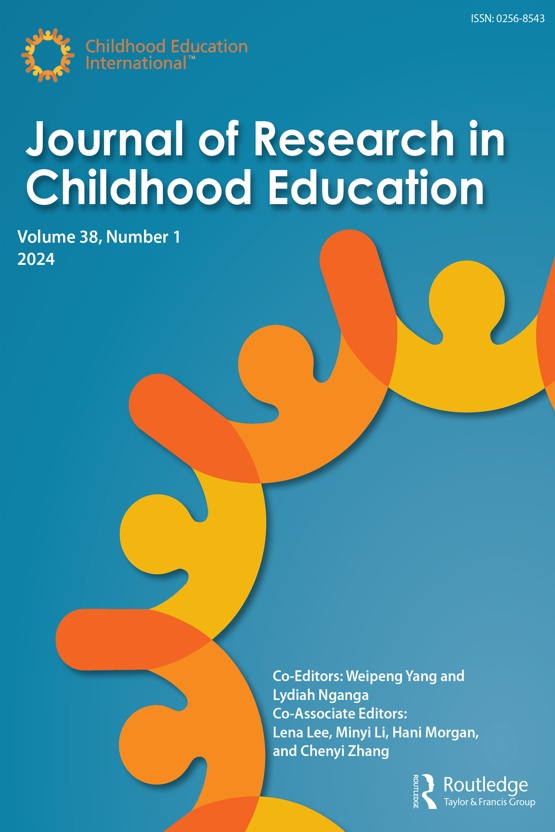Submit a Manuscript to the Journal
Journal of Research in Childhood Education
For a Special Issue on
Advancing Childhood Education With Artificial Intelligence: Opportunities, Challenges, and Future Directions
Abstract deadline
01 July 2024
Manuscript deadline
01 November 2024

Special Issue Editor(s)
Chenyi Zhang,
Georgia State University
[email protected]
Lauren Margulieux,
Georgia State University
Margaret Quinn,
Texas A&M University
Advancing Childhood Education With Artificial Intelligence: Opportunities, Challenges, and Future Directions
The Journal of Research in Childhood Education (JRCE) invites submissions for a theme issue dedicated to advancing knowledge and understanding about the impact of artificial intelligence (AI) technology in education of early childhood to adolescence (birth through high school).
AI is rapidly transforming various facets of society, and K-12 education is no exception. As of 2022, 34 states in the U.S. have adopted K-12 teaching standards of computer science (Computer Science Teachers Association, 2023). In recent years, there also has been a growing interest in the integration of AI technologies into early childhood education. AI technology, just like other innovative technological tools, holds the potential to revolutionize the process of teaching and learning within and outside of classroom, change the perspective of lifelong learning, and redefine essential skills that teachers and students should develop for navigating in a technology-enriched social cultural environment.
Scope and Topics:
Taking a transdisciplinary perspective, we invite researchers, educators, practitioners, and experts from different backgrounds and fields related to education (e.g., psychology, sociology, computer science, etc.) to contribute original research articles, reviews, case studies, and theoretical papers on topics related to AI in education, with consideration of children’s developmental characteristics, cultural backgrounds, and other social-cultural factors (e.g., family socioeconomic background). Potential topics include but are not limited to:
- AI-Enhanced Learning Environments in School: The design and evaluation of AI-powered educational platforms, apps, and games tailored for teachers’ classroom instruction, children’s learning, and teacher-child interactions.
- AI-Personalized Learning: How AI can adapt educational content and approaches to meet the individual needs and learning styles of young learners.
- Social and Emotional Learning (SEL) with AI: Exploring how AI can assist in the development of emotional intelligence and social skills from early childhood to adolescence.
- AI and Assessments: The role of AI in assessing and tracking the progress and development of learners.
- Ethical and Privacy Considerations: Ethical concerns and privacy issues associated with the use of AI in an educational environment.
- Teacher Education and Professional Development: Strategies for preparing educators to effectively integrate AI technologies in the classroom.
- Parental Involvement: The impact of AI on parent-teacher communication and involvement in children's learning and development.
Looking to Publish your Research?
Find out how to publish your research open access with Taylor & Francis Group.
Choose open accessSubmission Instructions
Submission Guidelines:
Important Dates:
- June 1, 2024: Submit Intent to Develop a Proposal. Send a one-paragraph email message with the subject line “Intent to Develop a Proposal” and include a short bibliography showing your areas of expertise. This should be emailed to Dr. Chenyi Zhang at [email protected].
- July 1, 2024: Submit Full Proposal. Prospective authors should prepare a proposal of 600 to 800 words and email it to Dr. Chenyi Zhang at [email protected].
Format of Proposal (600 to 800 words)
(1) Study overview and a short review of literature
(2) Methods
(3) Findings
(4) Conclusions and Implications
(5) The significance of the focal research for advancing research in childhood education, with a focus on “the impact of artificial intelligence (AI) technology in education of early childhood to adolescence (birth through high school).”
- August 1, 2024: Proposal Feedback. Authors will be notified whether their proposals are accepted.
- November 1, 2024: Submission of Completed Manuscript. All submitted manuscripts will undergo the standard JRCE double-blind review process. Please note that receiving an invitation to submit a full manuscript does not guarantee the eventual acceptance of the manuscript for the
theme issue. Please follow the Guidelines for Authors and submit completed manuscripts at the JRCE submission portal.
Submissions should include:
Unstructured abstract of 200 words
Five (5) keywords
Main document of ~8,000 words, including references and tables - January 1, 2025: Decision From Editors Sent to Authors: After review of comments from blind reviewers, editors will make decisions of reject, major revisions, minor revision, or accept.
- March 1, 2025: Revised Manuscripts Due: Revised manuscripts should be uploaded in the JRCE submission portal. If further revisions are deemed necessary, authors will be notified by April 1, 2025; second revisions would be due by May 1, 2025.
Expected publication [online] date: June 2025.